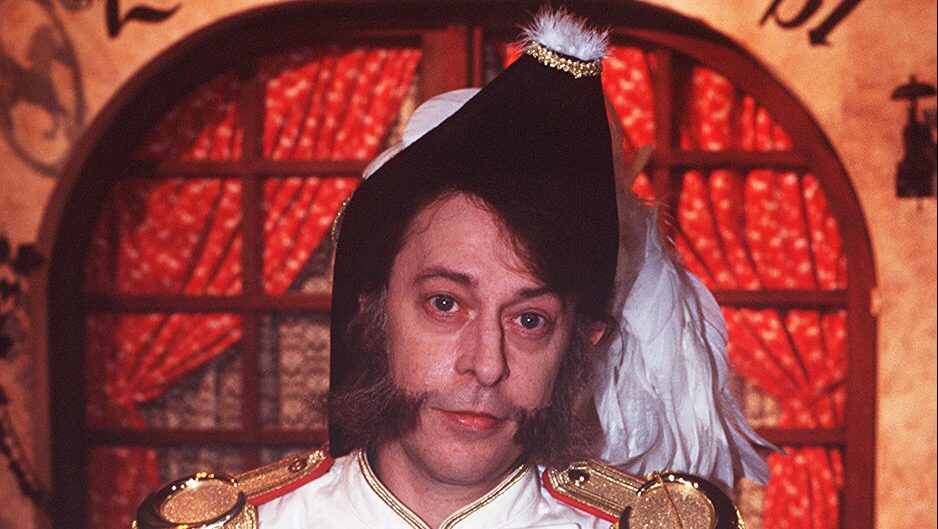Let’s get one thing straight: Suella Braverman is a racist. And this isn’t about her much vaunted – and thankfully, for the most part, thwarted – attempts to exile migrants to post-genocidal traumatised African countries, or fly-speck islands in the Atlantic Ocean, or, indeed, giant barges moored in British ports.
It is because of something Braverman said following the arrest of nine people a fortnight ago who are suspected of being involved in a plan to rob the JD Sports outlet in Oxford Street, London. Rumours apparently appeared on Snapchat in the days before the arrests, advertising a planned robbery of the store, and suggesting that interested parties adhere to a “dress code” of balaclavas and gloves.
In the event, a fair number of people did gather in the vicinity – other businesses put up their shutters and increased their private security, the Met turned up mob-handed, while the mayor, Sadiq Khan, said any offenders would be dealt with “robustly”. But none of this was enough when it came to Braverman, and her zeal to protect property above all things.
Apparently referring to the riots in US cities that followed the murder of George Floyd in 2020, the home secretary stated: “We cannot allow the kind of lawlessness seen in some American cities to come to the streets of the UK.”
Moreover, in order to prevent it: “Those responsible must be hunted down and locked up. I expect nothing less from @metpolice” (the Metropolitan Police).
Some newspapers, just in case you were wondering what this potential quarry for the London force might look like, helpfully carried a photograph of one of the arrests in Oxford Street: four white policemen gathered around a young black man in a T-shirt, two of them hanging on to his arms.
The dual purposes of hiding the youth’s identity while dehumanising him is achieved by his face being hidden, while those of two of the police are visible. But anyway, Braverman had already done the not-so-heavy lifting required to turn a conventional, Khan-style comment, about law and order, into something sinister. It’s all in the “hunted down” – an expression so strongly suggestive of the chasing of non-human game, that once it’s applied to black suspects being pursued by institutionally racist police… Well, words fail me – which doesn’t happen that often.
For those tempted to argue we cannot know the suspects are black, Braverman once again indulged in pre-emptive racial profiling on our behalf, by invoking the disturbances following Floyd’s death – a murder, lest we forget, that also led to widespread demonstrations in Britain protesting against the racism not just of the police, but of a whole swathe of representative and authoritarian institutions in this tight, right little island. Such as the Home Office.
I understand full well that in capitalist political economies such as this, the state’s defence of private property is, if anything, a more significant function than its monopoly on the exercise of violence, but is it really necessary to break quite so many young, black butterflies on the proverbial wheel? I don’t know – perhaps the memories of those affected by intercommunal violence are a lot sharper: people without skin in the game seem to’ve largely forgotten the widespread riots and attendant looting of 2011.
The vast majority of which took place in London, and followed the shooting dead of a young black man – Mark Duggan – by those self-same institutionally racist police. These riots and their aftermath laid bare the hierarchy of prejudice that underlies the threadbare patchwork of British multiculturalism: the rioters were perceived to be – and almost certainly were – disproportionately from the black community; while many of those who sought to protect some of the more than 2,000 businesses that were attacked and looted were from the communities who owned and ran them. David Cameron, the prime minister at the time, praised British Sikhs for forming vigilante groups to protect their gurdwaras – but there was plenty of freelance securing of the secular as well by British Asians.
None of this led to a genuine and searching examination of the intersections between race and class that have resulted in the old racial policies of empire being repurposed for an enlightened era. On the contrary: in the aftermath of the 2011 disturbances, exemplary sentences were doled out by vengeful judges – over 1,600 years of jail time overall, but by no means spread evenly when it came to the race and class of the defendants. Some London black communities were devastated by the riots’ aftermath – with young men and women caught up in moments of madness sent down for years.
Of course, this may not have been sufficient for one young British Asian barrister at the time – someone who probably heard plenty about intercommunal violence growing up, from her parents – because years later, she seems intent on some sort of grotesque pogrom-as-payback.



